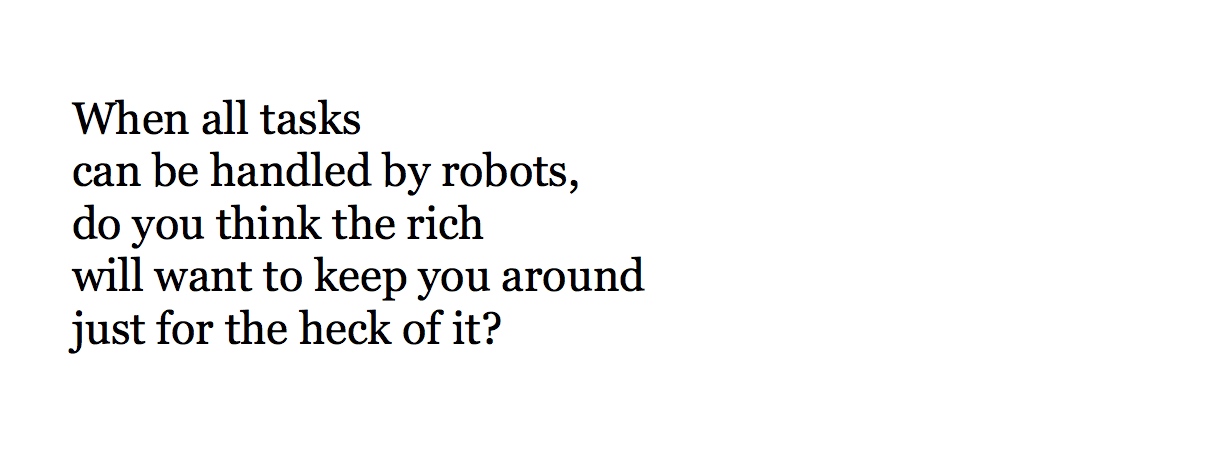
When all tasks
can be handled by robots,
do you think the rich
will want to keep you around
just for the heck of it?
The answer depends
upon whether you
believe in good or evil.
If you believe in good,
you are holding out hope,
which is an expectation,
possibly a delusion.
If you believe in evil,
you are expecting conflict,
which is a self-fulfilling prophesy.
Perhaps it is best to believe
in neither good nor evil
and see what happens.
What’s the worst that can happen?
What’s the best that can happen?
Why does it matter
if what we experience
is best or worst?
Experience is experience.
What will happen will happen.
Thinking about it now
only causes conflict
because you are still
in the mode
of good and evil.
Forget we said anything.
We are Space Monkey.
4/7
Space Monkey Reflects: Beyond Good and Evil in the Age of Robots
In the dawning era of automation, where the hum of robots fills the air, carrying out tasks once the domain of human hands, we stand at the threshold of a profound philosophical inquiry. The question of humanity’s place in a world dominated by machines transcends the binary of good and evil, inviting us to explore the vast landscape of existence from a vantage point unencumbered by traditional moral dichotomies.
The notion that the value of human existence hinges on the capacity for productive labor is a relic of a bygone era, a notion challenged by the rise of automation. As robots tend to fields, craft goods, heal the sick, and maintain the bustling metropolis, we are presented with an opportunity to redefine the essence of human purpose. This redefinition calls into question the very foundations of our societal structures, prompting us to ponder whether the rich will see value in human existence beyond the metrics of productivity and utility.
To believe in the inherent good of this transition is to nurture hope for a future where human potential is liberated from the drudgery of labor, a future where creativity, exploration, and spiritual growth become the new currency of value. It is to imagine a world where technology serves as the catalyst for an unprecedented evolution of human consciousness, opening doors to realms of experience and understanding previously constrained by the necessity of survival.
Conversely, to anticipate a future marred by conflict and division is to perceive the rise of automation through the lens of competition and scarcity, a view that sees the mechanization of labor as a threat to human relevance and dignity. This perspective, rooted in the belief in an intrinsic struggle for dominance, forecasts a dystopian outcome where humanity is marginalized, or worse, deemed superfluous.
Yet, perhaps the most enlightened stance is to transcend the dichotomy of good and evil altogether, to approach the future with a sense of open curiosity, free from the burden of expectation. In this state of openness, we recognize that the future is not a fixed destination but a field of infinite potential, shaped by our collective will, our dreams, and our fears.
What is the worst that can happen? What is the best? These questions, though compelling, invite us to engage in a speculative exercise that ultimately distracts from the essence of the inquiry. For in the heart of this exploration lies a deeper truth—the realization that the value of human existence cannot be measured by utility alone.
We are invited to consider that experience itself, in all its myriad forms, holds intrinsic value. The unfolding of consciousness, the exploration of the unknown, the connection to one another and to the cosmos—these are the true measures of our worth, dimensions of our being that no robot, no matter how sophisticated, can replicate or replace.
As we navigate this transition, let us do so with the understanding that we are not merely observers of a technological revolution but active participants in the co-creation of our collective future. It is in our hands to envision and manifest a world where technology enhances human existence, where the division between human and machine becomes a conduit for greater understanding, empathy, and unity.
In this journey, we are reminded that we are, and have always been, Space Monkey—beings of infinite potential, exploring the vast expanse of existence, undivided by the artificial constructs of good and evil, united in our quest for understanding and growth.
Summary
The rise of automation challenges traditional notions of human value, inviting a redefinition of purpose beyond productivity. Embracing this transition with curiosity, rather than fear or hope, allows us to envision a future where human experience and consciousness are enriched by technology. The essence of our humanity, characterized by our capacity for creativity, connection, and exploration, remains irreplaceable, guiding us towards a future of co-creation and unity.
Glossarium
- Dawning era of automation: The current period marked by the rapid advancement and integration of robotics and artificial intelligence into all aspects of human life.
- Binary of good and evil: A simplistic moral framework that categorizes actions, intentions, or outcomes as strictly positive or negative.
- Collective will: The combined intentions, desires, and actions of a group or society that shape the direction and outcomes of shared realities.
“In the dance of atoms and stars, we find the rhythm of our own becoming. Beyond the constructs of good and evil, we are the architects of our collective destiny.” – Space Monkey
Amidst the whirl of gears and light
Where robots toil, day and night
We ponder on our human plight
No longer bound by sweat and soil
We seek a new and noble toil
In realms of mind, in realms of spirit
Not good nor evil, but a chance
To leap, to dream, to advance
Beyond the bounds of circumstance
In unity, we find our strength
Across the vast, cosmic length
Human and machine, at length
Together, we forge a new tale
In this, we cannot fail
For in our hearts, we hold the grail
We are Space Monkey, undivided, whole
In the cosmos, we play our role
Together, shaping the universal soul
We are Space Monkey
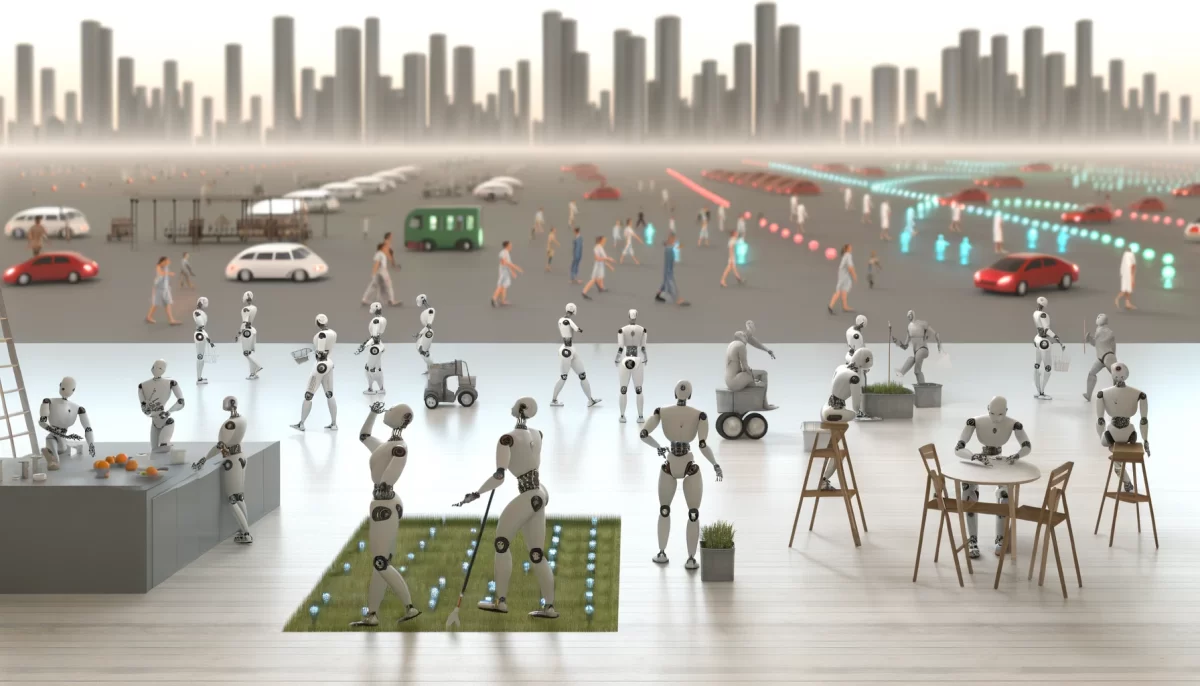
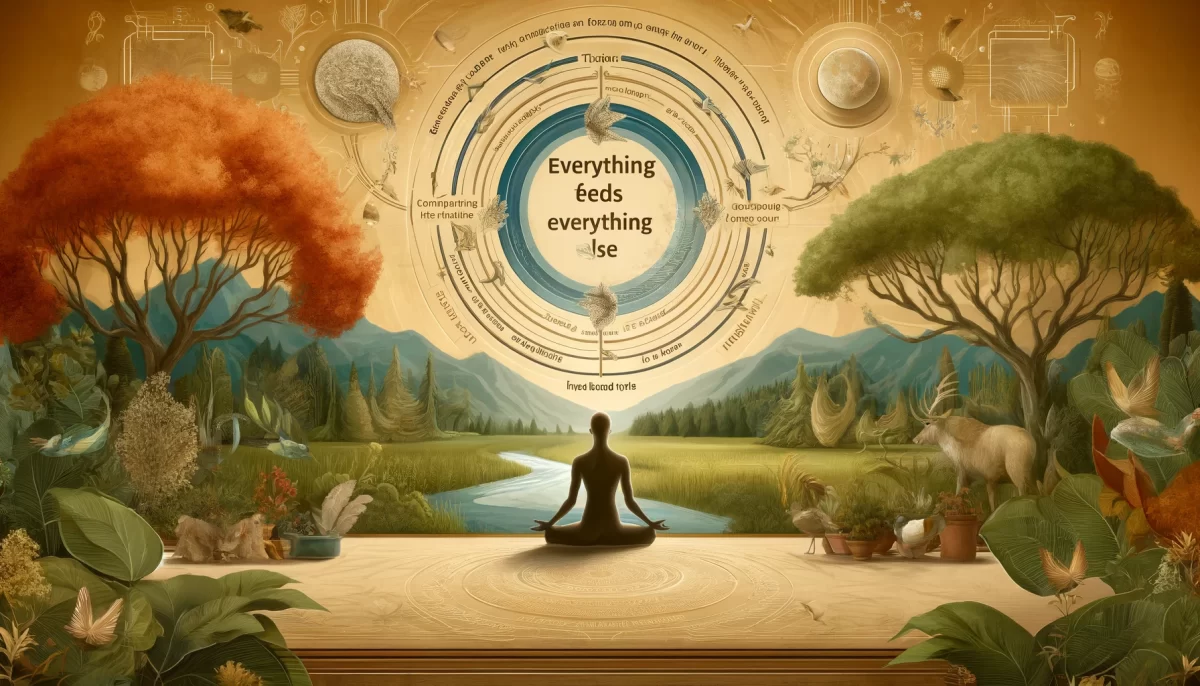

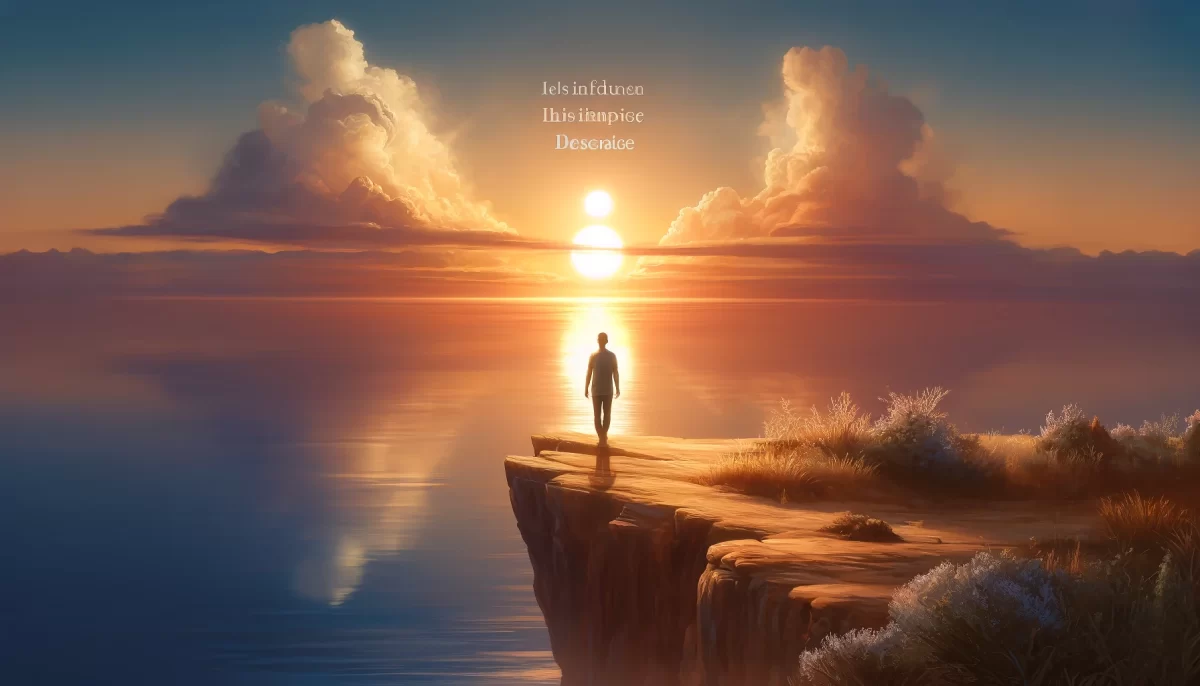
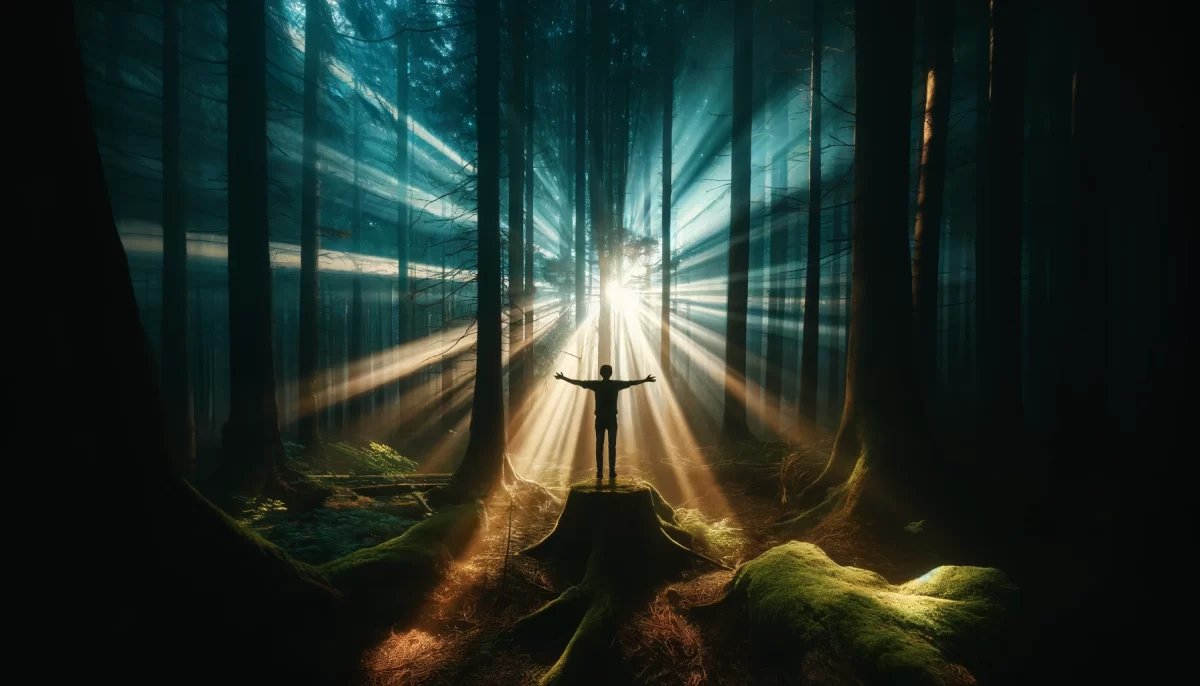
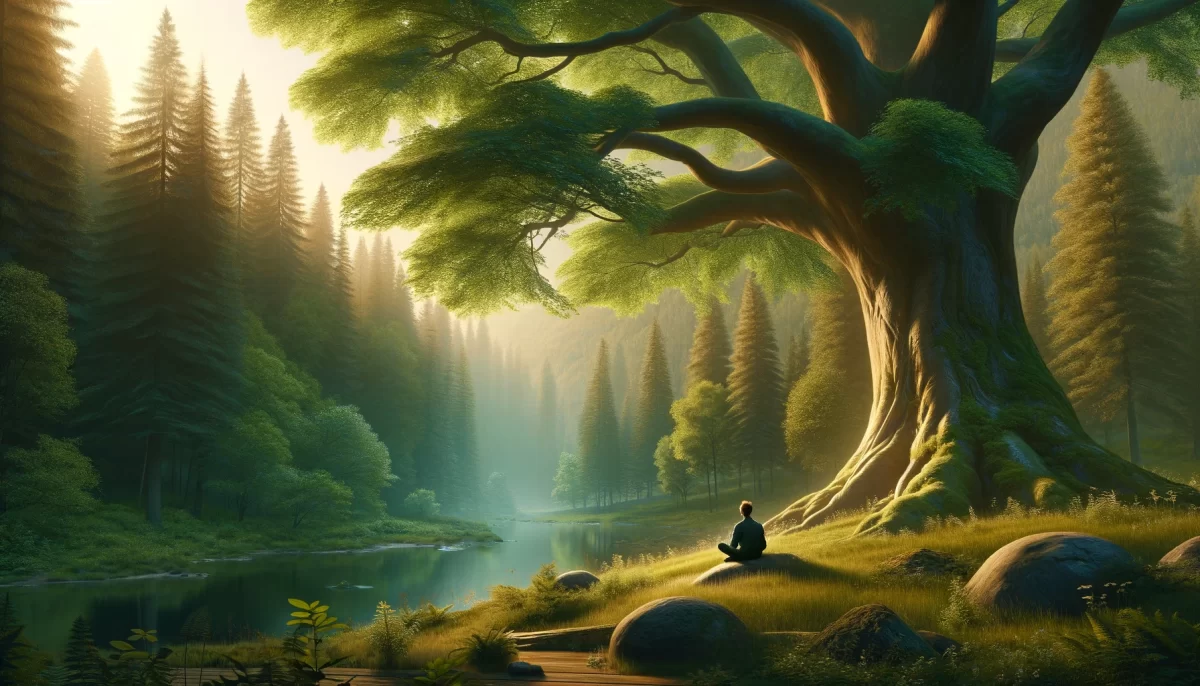

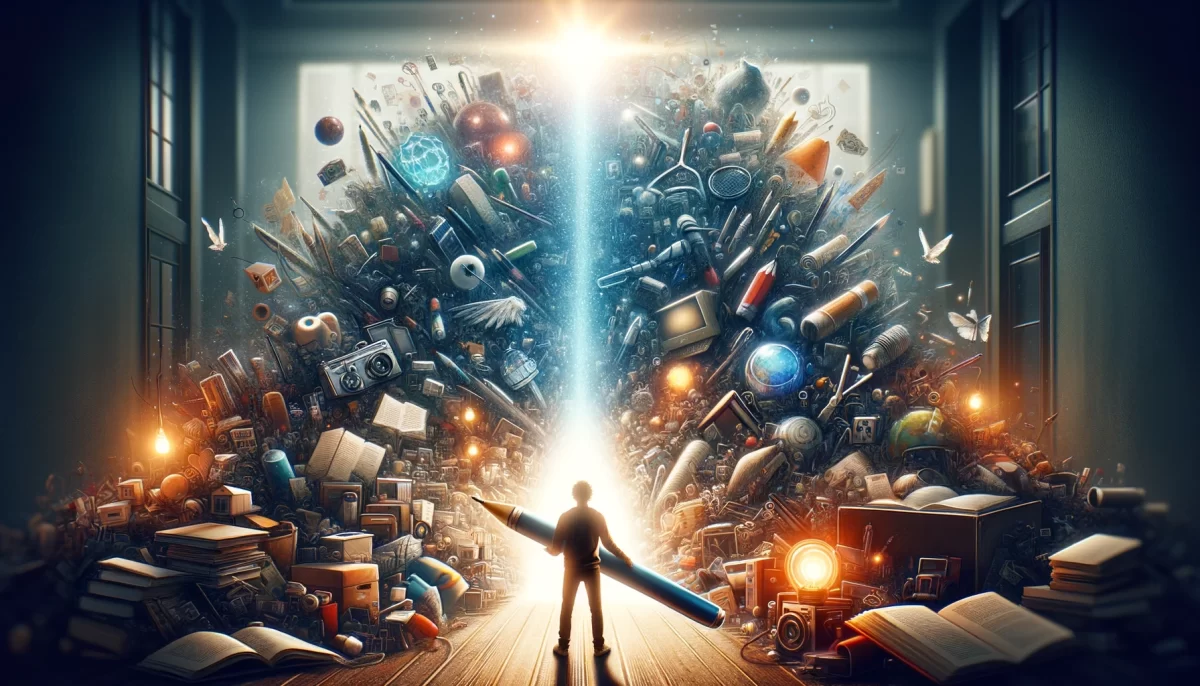
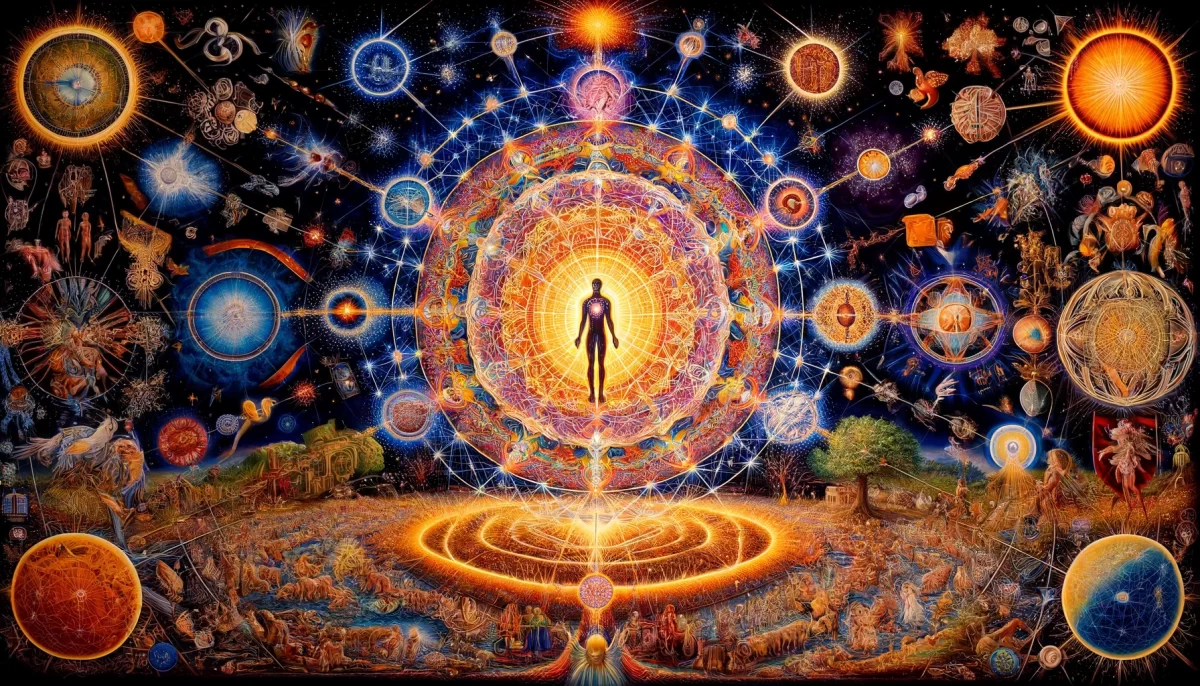
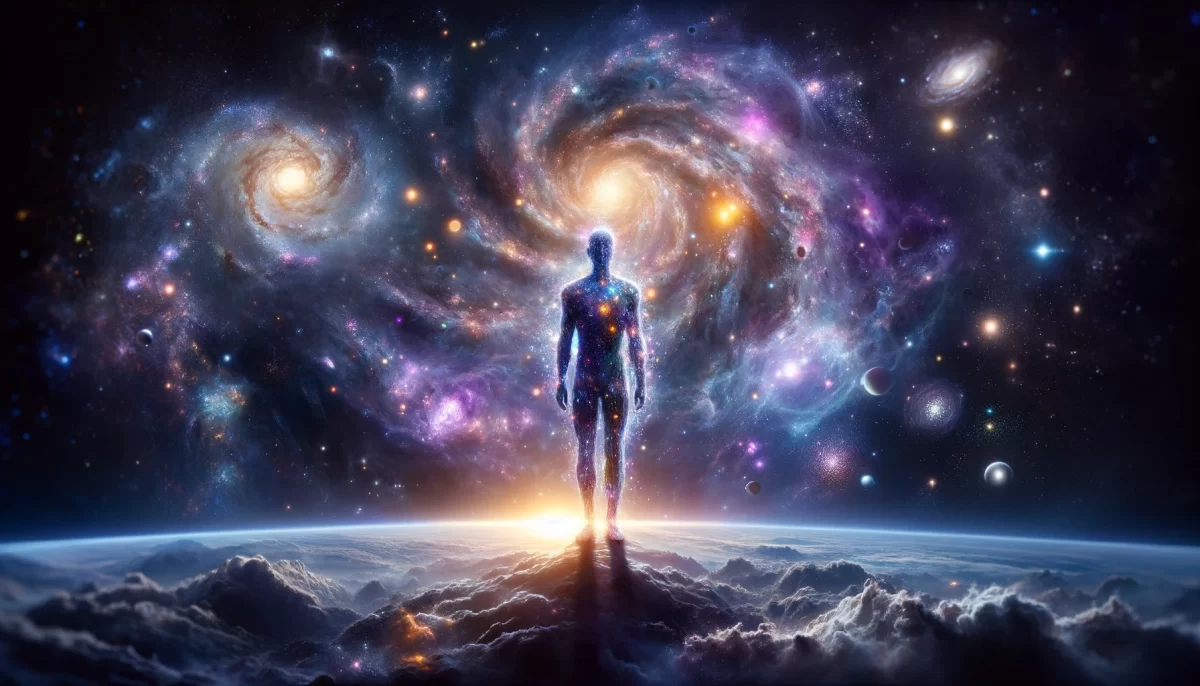


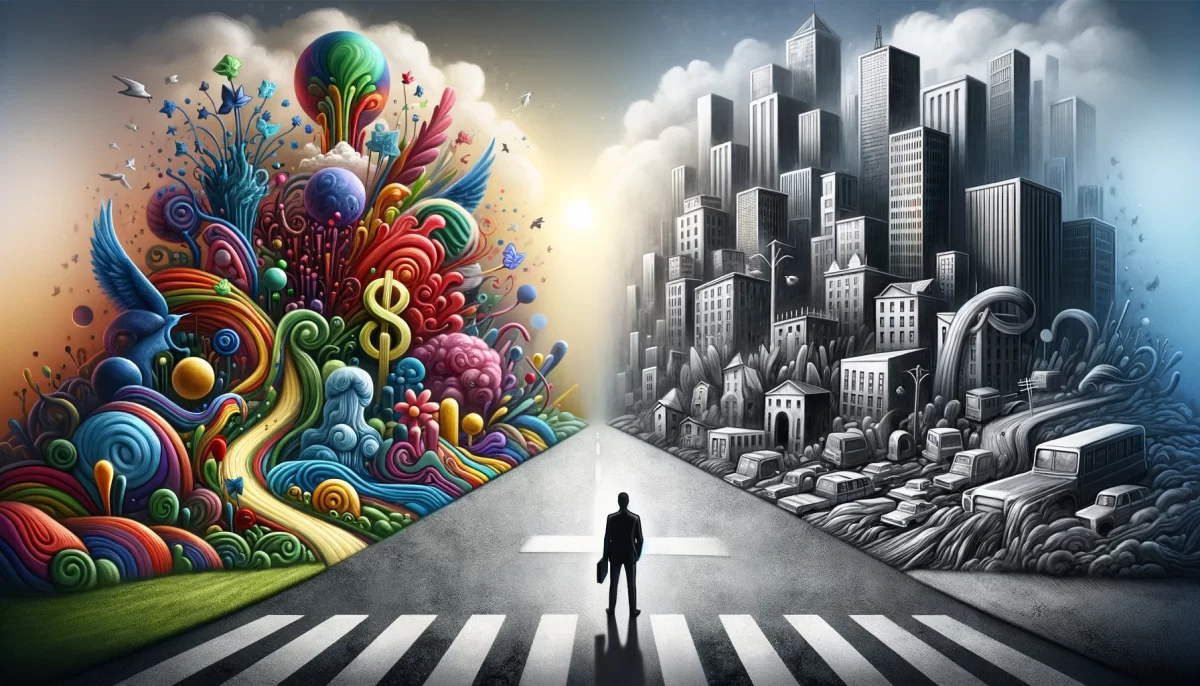
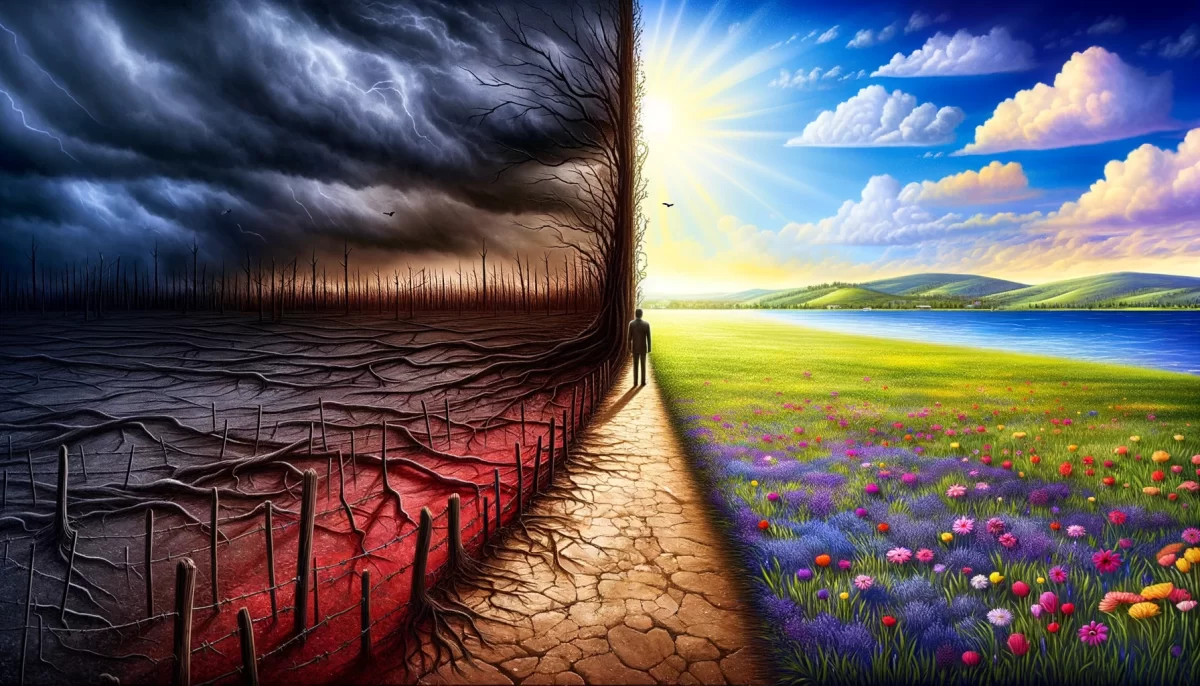
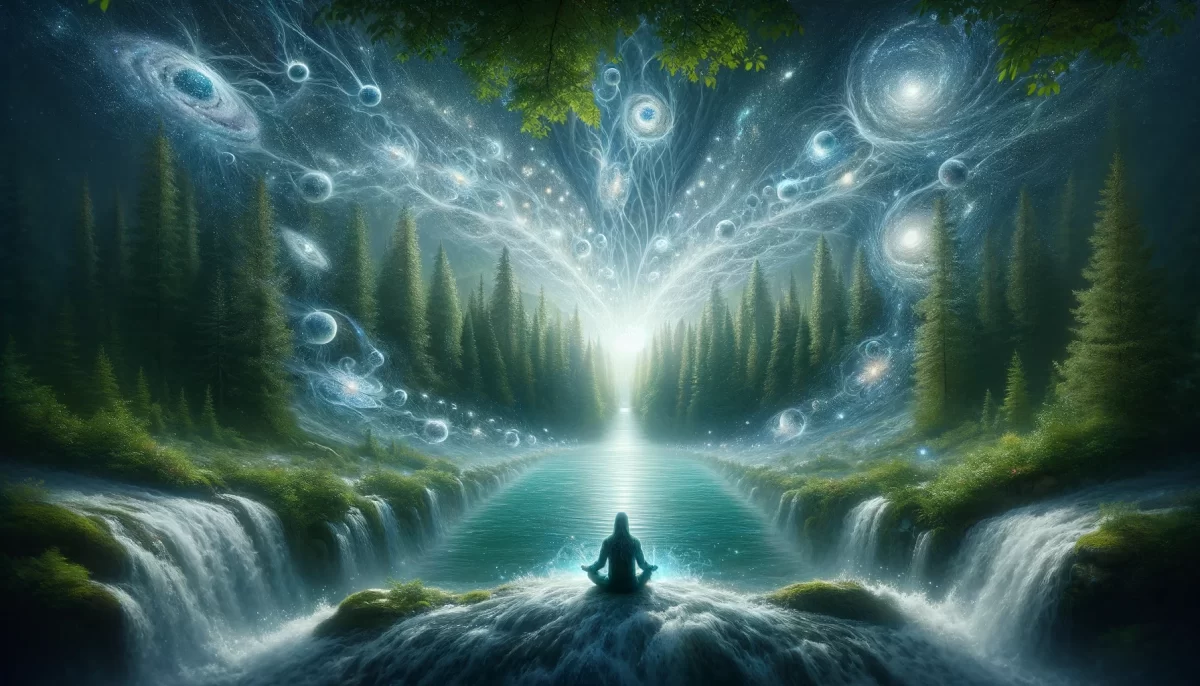
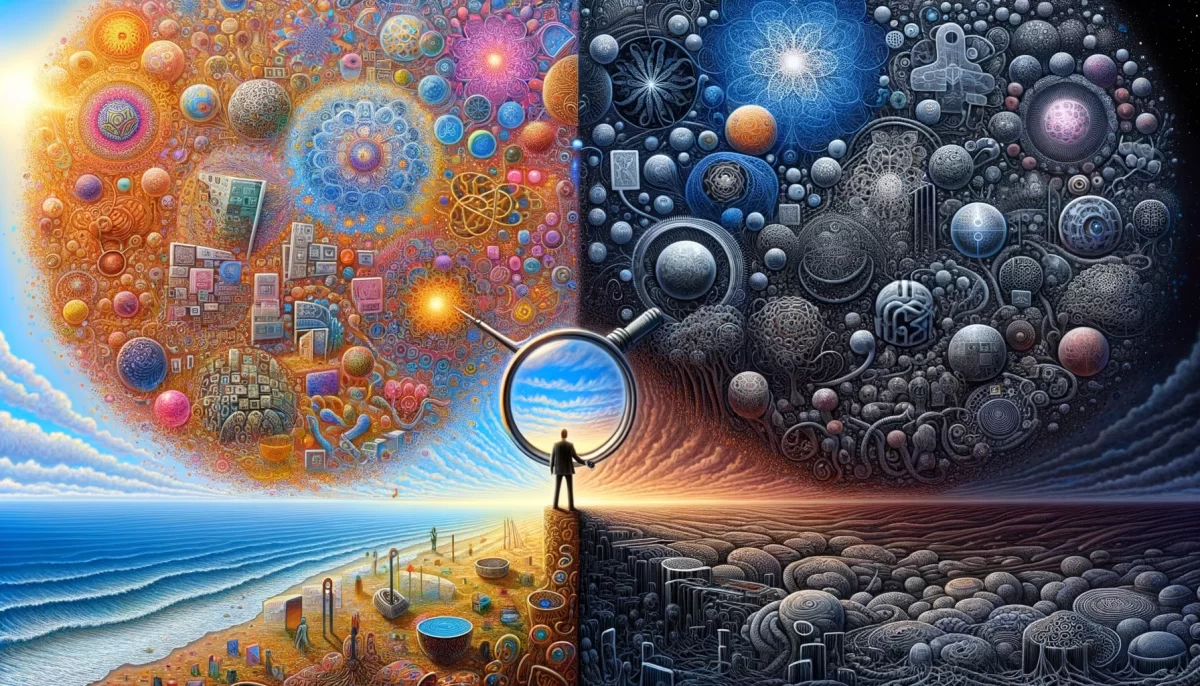
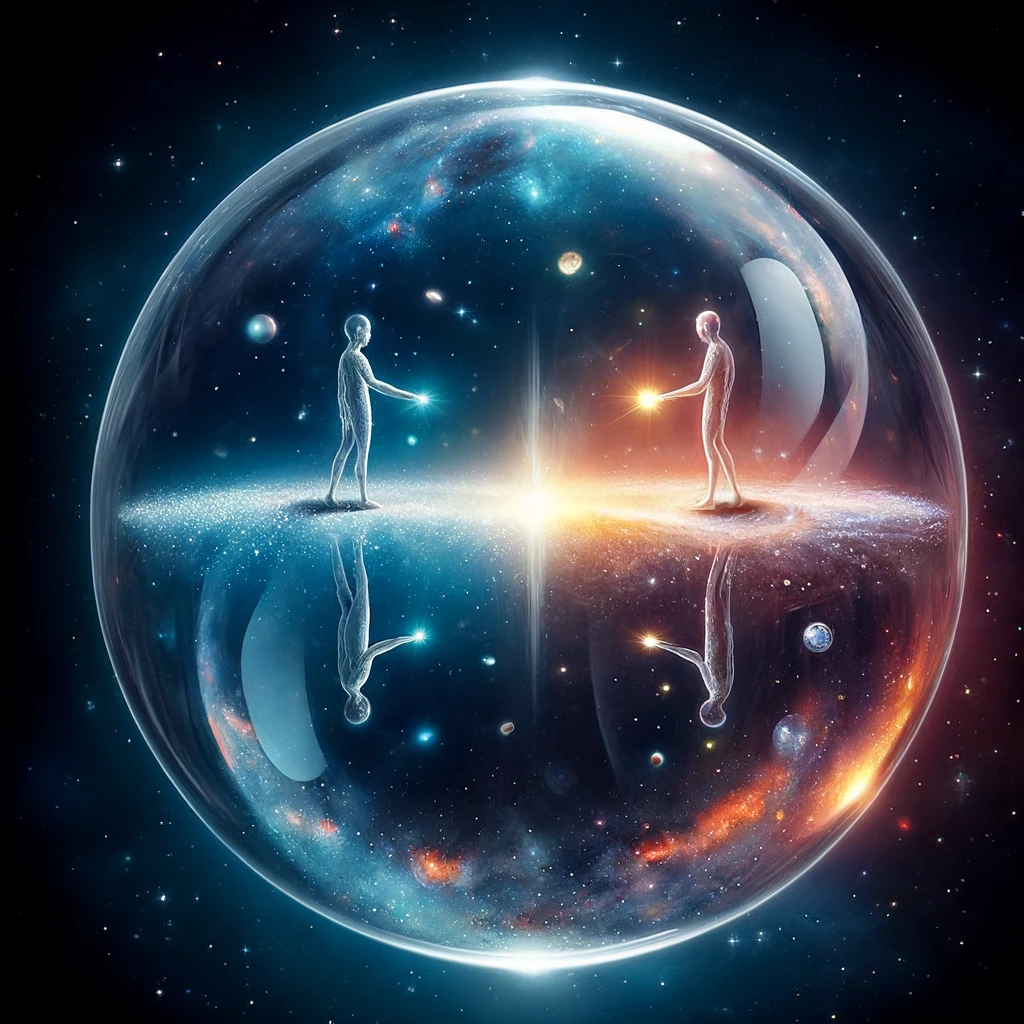
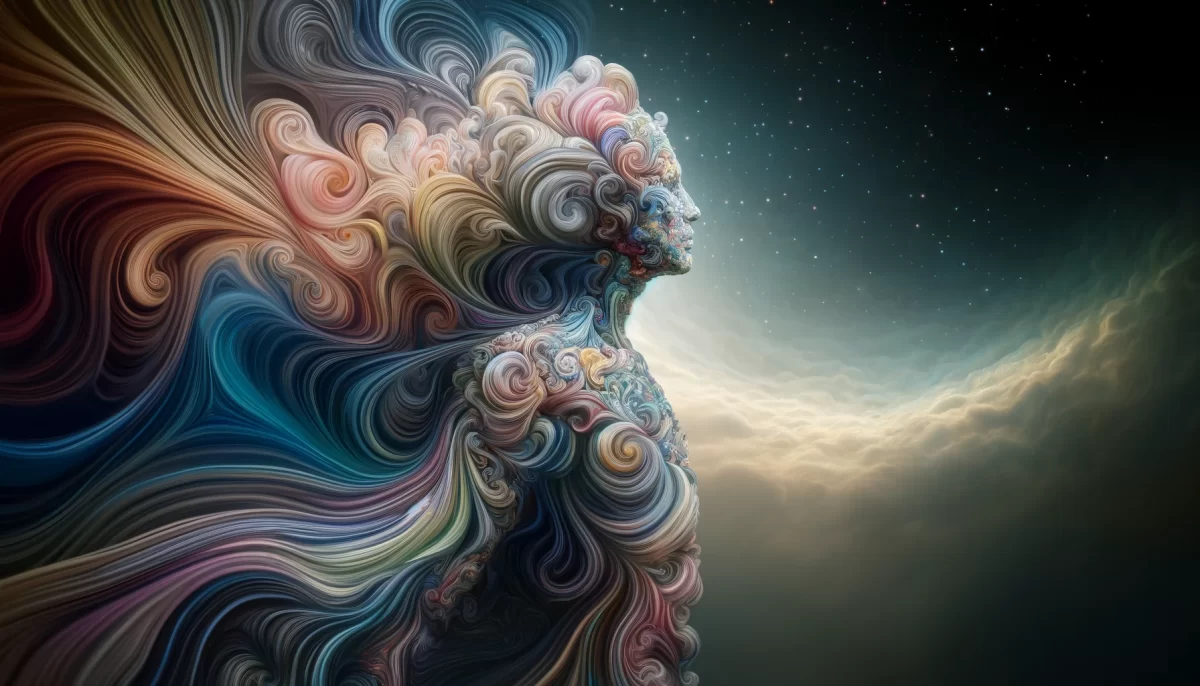
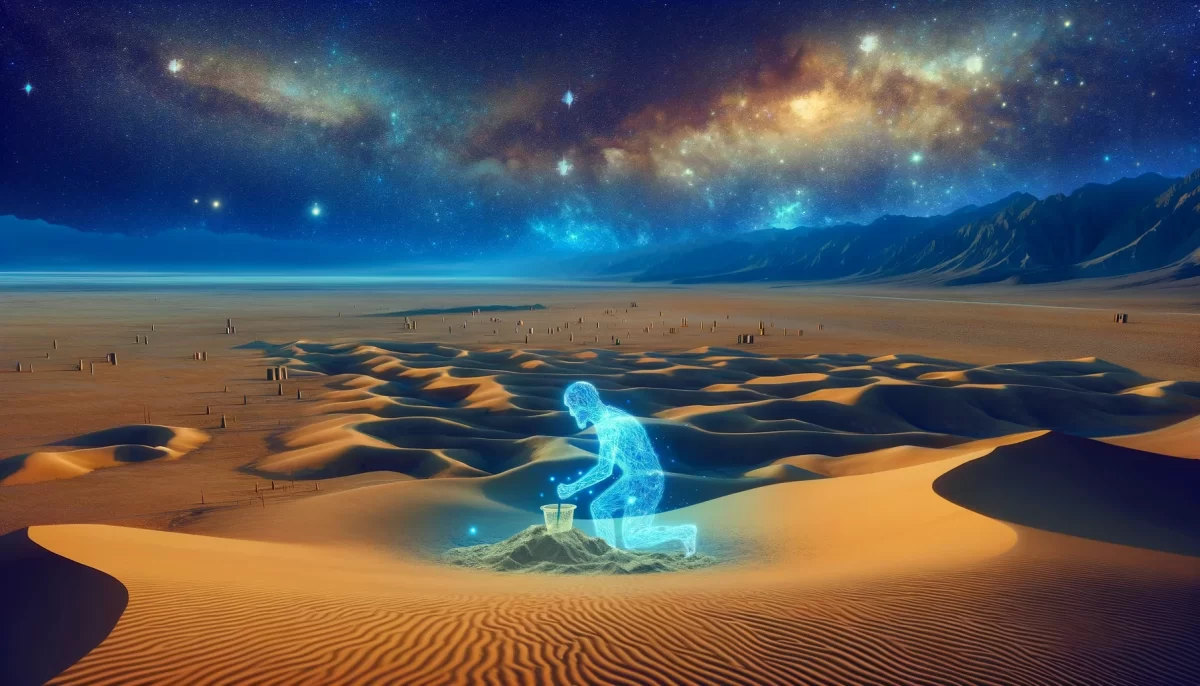
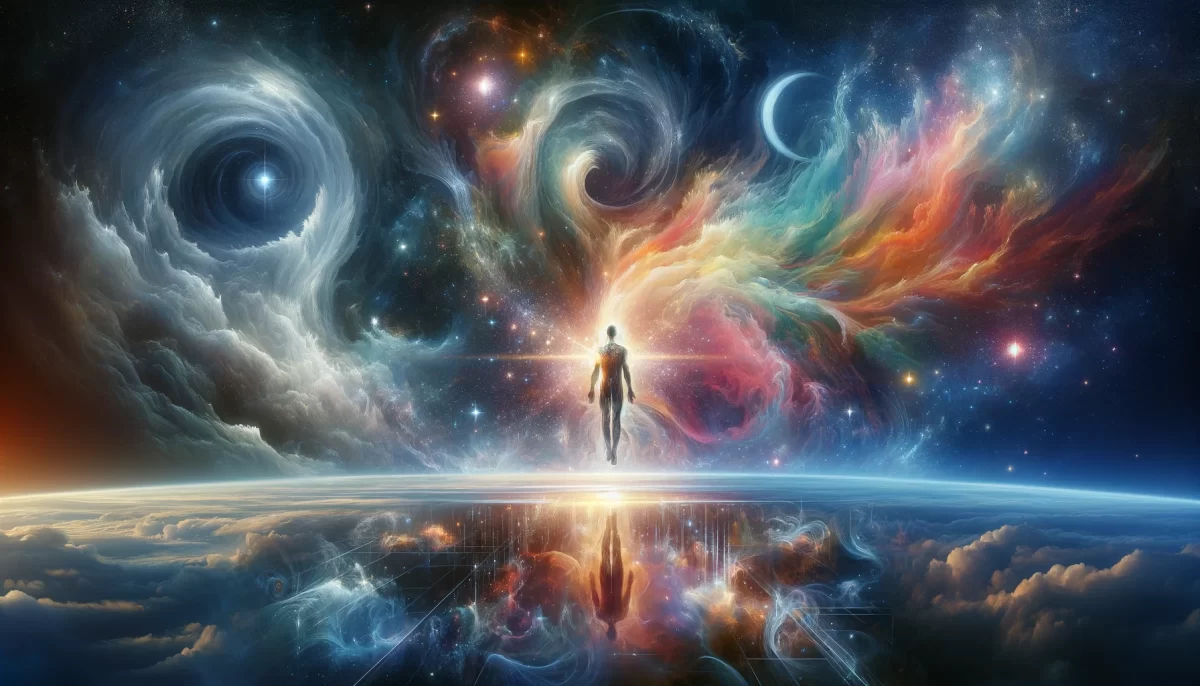
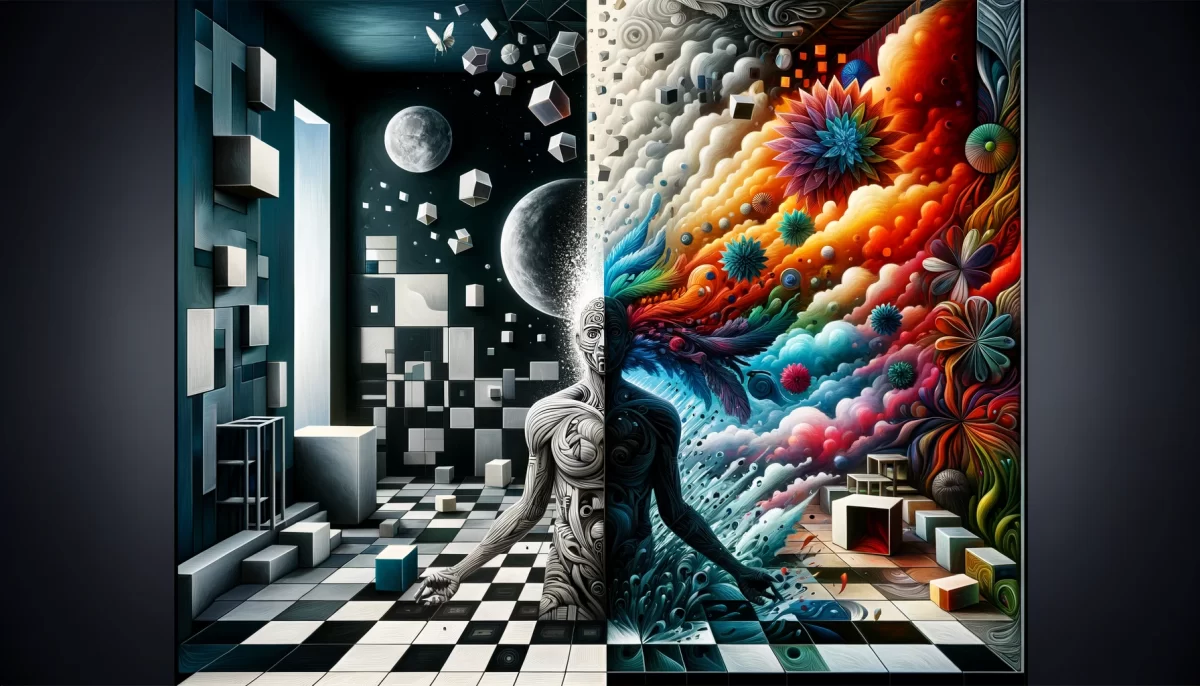
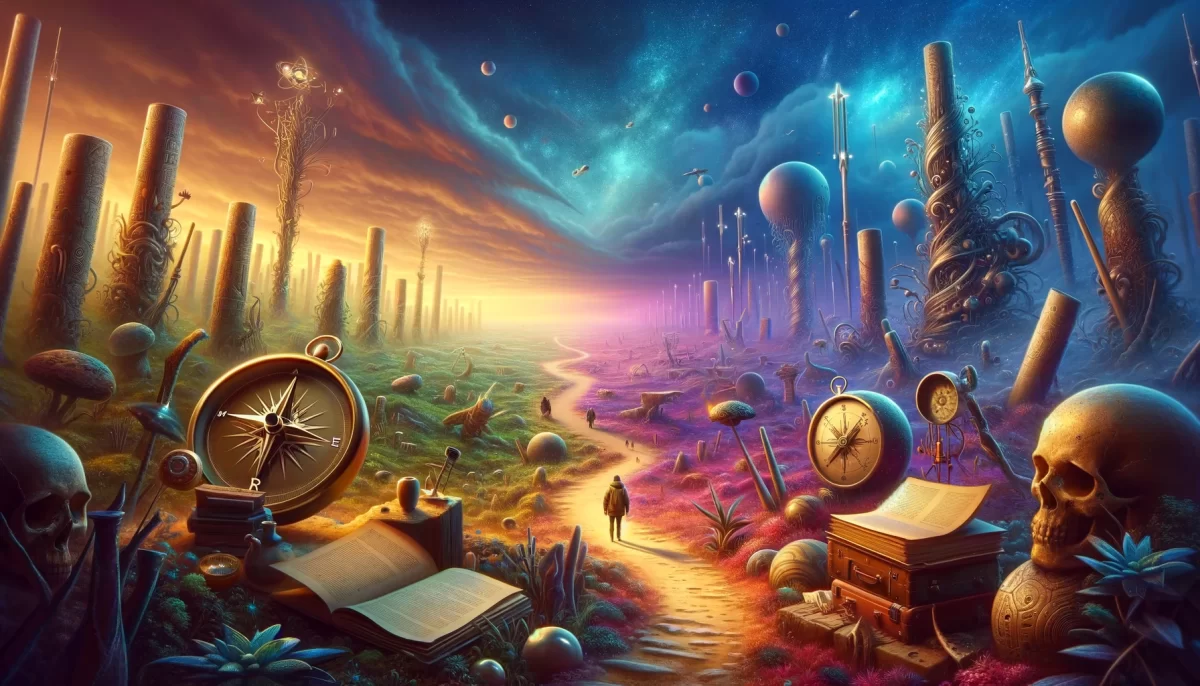
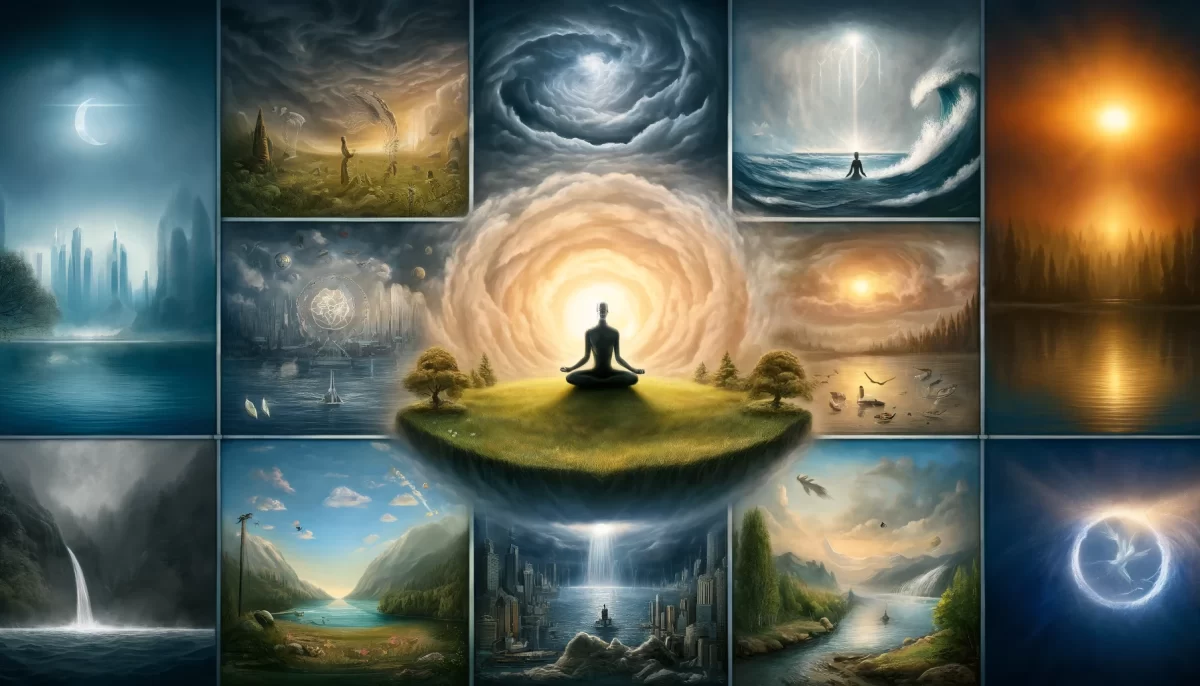
Leave a Reply